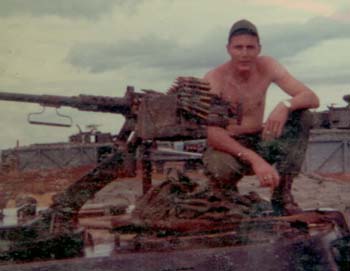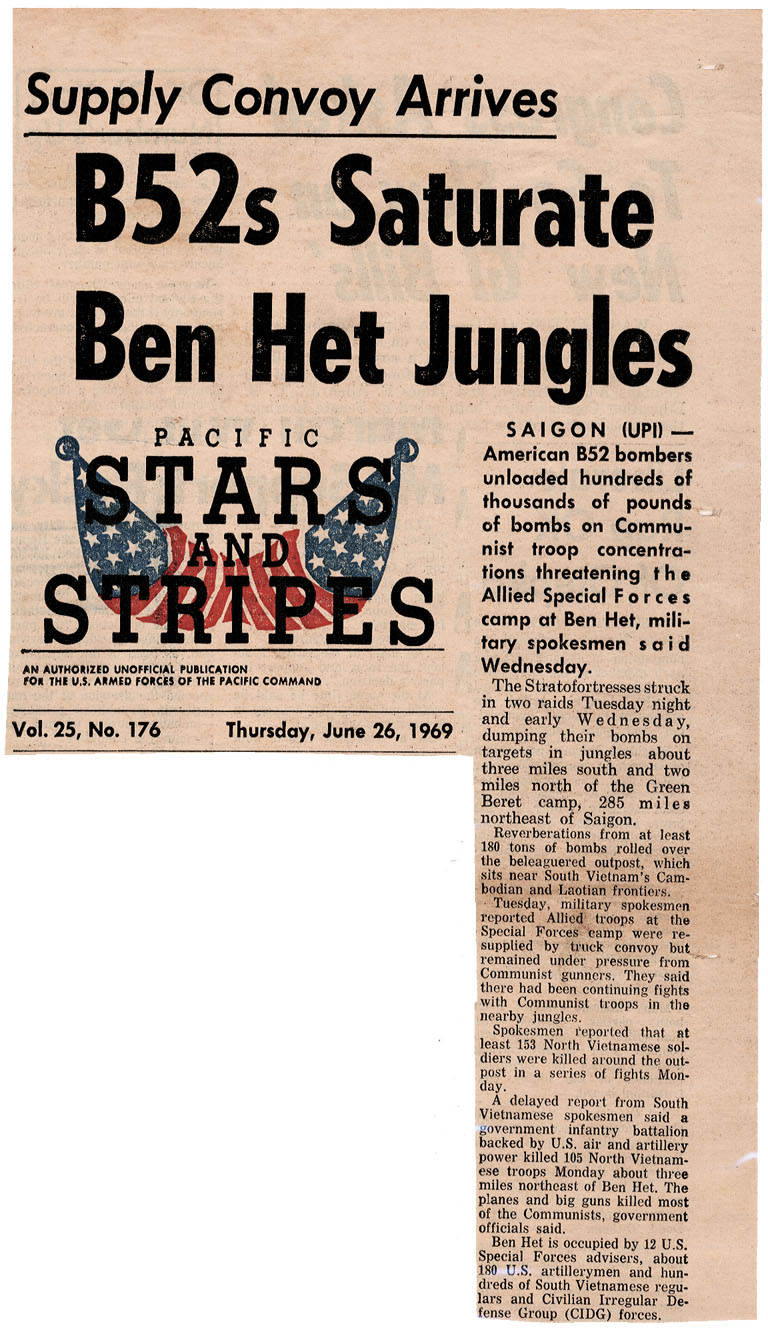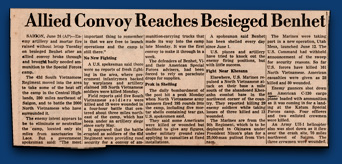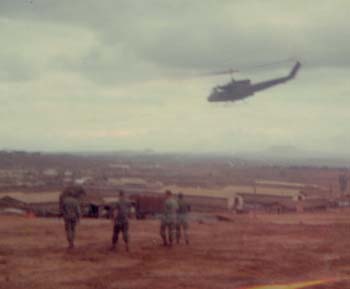ONLY 65 MEN WITH THE WILL TO SURVIVE - MORRIS JOHNSON'S INSPIRATIONAL STORY

 Against 10,000 Enemy Soldiers – The Battle to Survive through Mojo’s Eyes
Against 10,000 Enemy Soldiers – The Battle to Survive through Mojo’s Eyes
Morris Johnson was assigned to a unit in the Central Highlands of Vietnam known as Pleiku. His extensive training at Ft. Sill enabled him to outrank a Korean War veteran, who didn’t take too kindly to the young officer schooling the troops on how to fire their howitzers more efficient than in the past.
Johnson and his group of sixty artillery soldiers were moved to Ben Het an area without any U.S. infantry support. There were 10 – 12 Rangers at the base that were departing as Johnson and his group arrived.
The interesting aspect is that one of those rangers was former NHRA Pro Stock racer and team owner Dave Hutchens of Wayne County Speed Shop fame. He didn’t find out that fact until 1988 at the U.S. Nationals when they were standing around in pre-race promos for the Mr. Gasket Pro Stock Showdown. Hutchens was in the group as Johnson was entering.
“We just embraced there at the race track,” Johnson said with a smile.
Shortly after that Hutchens and his group had left the base Johnson said the action heated up.
“We had a captain with us in Ben Het, and when we’d get some artillery fire, he’d report in that we were under major attack,” Johnson recalled. “We’d get a few shells, and he’d run in the bunker and hide. The military sent crater analysis teams up there to check out his reports, and they pulled out our support.”
After the pullout, Johnson said, they really began to get hit.
But, Johnson and his group weren’t overly concerned with the Viet Cong weaponry which was manufactured in Russia.
“We’d see the pull of smoke up on the hill, know something was coming, and we’d take cover by the time it hit,” Johnson said. “Twenty-five seconds later, the round would explode.”
The fighting intensified to the point that Johnson and his team donned gas masks for multiple days and eventually they were surrounded by as many as 10,000 Viet Cong soldiers.
“Sixty-five versus 10,000 is not an even fight,” Johnson said. “Then we ran out of ammo, food, and water. I was using ammo plastic to catch water and using the chlorine pills so that we could drink it. If you didn’t use those pills, you would get sick in a hurry.”

Johnson and a trio of soldiers had sought to slip by the enemy to procure the much-needed supplies and return to the base.
The enemy saw their attempt to escape in the fleeing truck and immediately tried to thwart the effort. Johnson and the group exited the vehicle when the shells began dropping and sought refuge in a ditch. The shells came in like clockwork and as Johnson said, walked their way to their location. He directed the group to safety just in time.
“When the one came next to the ditch, we knew where the next one was coming, when we saw the puff of smoke, we ran like crazy to the track, and it hit where we had been,” Johnson said.
They drove the trucks quickly down the road where they saw an incoming convoy of support. Their support drove right into an ambush as Johnson and his soldiers watched.
“They never knew what hit them,” Johnson said. “They were the support that was supposed to be coming to us but needless to say; they didn’t get there.”
Johnson finally got into the next city, and he and his group stole a five-ton, water truck, and before they could get back to the parked vehicle they had left, someone had stolen it.
One of the trademarks of Vietnam was that the war was broadcast into the living rooms back home. Johnson’s mother had learned on the news that a truck had made it into Ben Het. Mother’s intuition told her that it was her son.
 “I stopped into a monitoring station and called home to Virginia, and my mom told me she knew that was me,” Johnson said. “The military advisor on the phone interrupted and asked me to tell her to refrain from discussing military business.
“I stopped into a monitoring station and called home to Virginia, and my mom told me she knew that was me,” Johnson said. “The military advisor on the phone interrupted and asked me to tell her to refrain from discussing military business.
“She didn’t stop. All she could say was that ‘I knew that was you in the truck.’ They couldn’t get her to shut up.”
Johnson made it back to the base, and a few days later the military showed up with support.
Had it not have been for one of the soldiers in his unit being able to get a letter out to his dad, a high ranking colonel, Johnson wonders how they would have made it out of there alive when those procured supplies ran out.
But they did make it out. The military sent in enough firepower and Air Force air support that lit up the entire mountain like nothing he’d ever seen. It didn’t hurt that journalist Peter Arnett, whom Johnson met and escorted out of the line of fire, was there to witness the fireworks.
Johnson left the hill with an experience he’ll never forget.
Get the @competitionplus Mobile APP to get your drag racing news quick and easy. - https://t.co/HsiKEmdZXO pic.twitter.com/qpgtrHqnpr
— Competition Plus (@competitionplus) January 4, 2019




